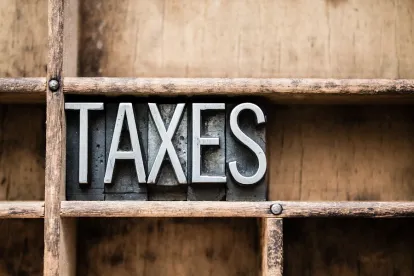Because 2022 is an election year, the start date for the Alabama Legislature’s regular session comes early: Tuesday, January 11. As we do annually, here are some unofficial prognostications on the major items of tax legislation we can expect to see debated in the upcoming session. This list is of course subject to change in a moment’s notice, and we’re offering only our personal opinions, which are not necessarily those held by our law firm, clients, or business and professional associations we are affiliated with.
More Federal Stimulus Act Conformity Legislation
Readers may recall that the Legislature over the past few sessions has struggled with whether to conform with, decouple from, or do nothing in response to the Tax Cuts and Jobs Act of 2017 followed by the three stimulus bills passed in rapid succession by Congress. Although Alabama Act # 2021-1 was this Spring’s omnibus tax conformity and de-coupling bill, there were two other stimulus-response bills pushed through at the last minute. Nevertheless, there were still issues left on the table when the session adjourned.
Without knowing at this point whether President Biden’s “Build Back Better” Reconciliation Bill will pass in one form or another, the major item remaining from last session relates to our rare federal income tax (FIT) deduction. Specifically, we’re focusing on individual taxpayers who receive by year-end one of several targeted FIT credits, including the Earned Income Credit and the Child Care Credit. As a result, they’ll pay less FIT than they otherwise would. But that in turn translates to a correspondingly smaller FIT deduction and a larger Alabama tax liability in many cases. This bill would in essence restore to them the lost FIT deduction resulting from the receipt of any of those FIT credits. Losing part of the FIT deduction while receiving a dollar-for-dollar federal tax credit may not materially harm many taxpayers financially, but the revenue gain, absent passage of this bill, was scored last session at approximately $87 million. And many if not most of the affected individuals/families are low-income taxpayers.
30-Day Extension of Due Date for Alabama Corporate and FIET Returns Beyond Extended Federal Due Date
The AICPA, the Council On State Taxation (COST), and the Tax Executives Institute (TEI) are urging state legislatures across the country to amend their filing deadlines to give corporate taxpayers (including financial institutions but not individuals or pass-through entities) the option of filing their state income tax return up to 30 days after the extended due date of their federal return. The influential Business Council of Alabama (BCA) recently endorsed that proposal, and a majority of other states have already passed enabling legislation. To mitigate what might otherwise be a substantial revenue deferral to the state, the extension language only relates to filing the Alabama return, not to paying the tax itself.
R&D Income Tax/FIET Credit
After more than 10 years of bouncing around the Legislature in one form or another, this bill may finally have “legs” in light of the recent endorsement by the Alabama Innovation Commission to the Governor. The endorsement, however, didn’t include a description of the bill nor which taxpayers could claim it (“certain targeted high-growth industries”), but most bets are on the most recent version of the bill (HB 244), which garnered the support of the business and higher-ed community and key business associations/chambers of commerce, such as the BCA and the Birmingham Business Alliance, in the past few legislative sessions. Among other things, the current version of the bill includes a super-size tax credit if the taxpayer pays an in-state university, college, or non-profit research institution to perform the qualified R&D.
Grocery Tax Repealed or Reduced
This may be the year the Legislature finally resolves either to repeal the state 4% sales/use tax on qualifying “food” (always a moving target) or at least to reduce the rate somewhat. The state is swimming in revenue this year, due in large part to federal government stimulus payments to the states and local governments, so the substantial loss of tax revenue from exempting food may not hit so hard. But many warn that these good times won’t last forever, plus that would leave the cities and counties to decide whether to follow suit by repealing or reducing their corresponding tax, or increasing their levies to fill the hole, or perhaps simply leaving their levies intact and hoping their constituents won’t complain. That is a politically tough situation for them.
Amendments to the SSUT Program
Most readers have heard that the ADOR’s Simplified Sellers’ Use Tax Program has been an unqualified success and was a godsend during the pandemic, when so many of our brick-and-mortar retail stores were forced to close, both to state and local government coffers and to the taxpayers who registered and therefore avoided multiple filings, multiple tax rates, and multiple audits. Some local governments, however, are not so happy. They complain that the flat 8% rate is far too low in light of the fact that the combined rate in most cities is at least 10%. Many cities also don’t like the distribution formula and want more of the revenue allocated to them, either by a different formula or by allowing them to require out-of-state or internet vendors to register with them and pay tax directly to them. The latter situation would be problematic on a number of levels. We would expect any changes to the existing SSUT program to either increase the tax rate to something between 9% and 10% and allocate a different portion of the new revenue to the cities.
Joint Audits by the ADOR and Local Taxing Authorities
The Association of County Commissions of Alabama (ACCA) lists as one of its 2022 legislative priorities “[t]o establish workable solutions between local officials and the Alabama Department of Revenue to ensure the application of efficient and effective tax administration processes and procedures at the local level.” The BCA has language in its recently adopted 2022 tax legislative agenda that sounds similar. However, we suspect that the ACCA’s interpretation of that language may be just a bit different than the BCA’s and that of the Birmingham Business Alliance, Alabama Retail Association and NFIB. Let the negotiations begin.
Conformity with Multistate Tax Commission (MTC) Model Partnership Audit Statute
Admittedly your authors have a vested interest in this one since we represented the ABA Tax Section in the negotiations over the model statute a few years ago, which is now being advocated to the states by a unique coalition that includes the MTC, COST, AICPA and TEI. At this point, the Alabama State Bar Tax Section is taking the lead in negotiations with the ADOR. The bill would conform with the BBA 2015 “comprehensive partnership audit regime” (CPAR), while not allowing the state DORs to conduct their own audits of those partnerships (including multi-member LLCs) that either couldn’t or for some reason didn’t timely elect-out of CPAR. Those partnerships will be audited by the IRS, in effect, as if they were a C corporation. The MTC Model Statute would respect the federal elections the partnership can make, such as the election to “push out” the assessment to those who were partners during the audit period. The state would also respect the designation of the partnership representative. In return, the audited partnership would have six months from the “final determination” of the IRS audit (often called the “RAR”) or ensuing litigation to notify the states of the IRS’ findings, and send them a check for the state tax and interest if due. Of course, the IRS could also notify the states directly through their exchange of information agreements.
Decoupling or Limited Decoupling from IRC Section 163(j)
Unlike most of its southeastern neighbors, Alabama didn’t de-couple from the business interest expense limitations imposed by the TCJA under IRC § 163(j), and that section automatically becomes more punitive this tax year and even more so next tax year. There is some mitigating language in the Alabama version of that section for consolidated federal filers, but there appears to be a move afoot to revisit either de-coupling entirely from 163(j), or perhaps decoupling from the automatic changes that go into effect this tax year and next, or perhaps offering the taxpayer an election to avoid 163(j) in a given tax year in return for waiving the benefit of accelerated depreciation under IRC §168(k) for all assets placed in service that same year.
Increasing the Personal Exemption and Standard Deduction/Filing Thresholds
A number of legislators have announced over the past few months that they plan to introduce legislation this Spring that increases personal exemptions and/or the standard deduction. Although none of those bills have been prefiled as of December 13, we should expect to see them soon.
Sales and Use Tax on Cloud Computing and SaaS?
As we know, services generally are not subject to sales and use tax in Alabama. But, in the wake of the Alabama Supreme Court’s landmark ruling in Ex parte Russell County Hospital, all software – including custom software – is now taxable. There are rumors of possible legislation to confirm that SaaS and other cloud-based products are services and not taxable tangible personal property.
Keep in mind, much can change over the next several weeks. And who knows what the Spring may have in store for the Legislature, especially while Congress is still in session. But rest assured, we’ll be watching!





 />i
/>i

